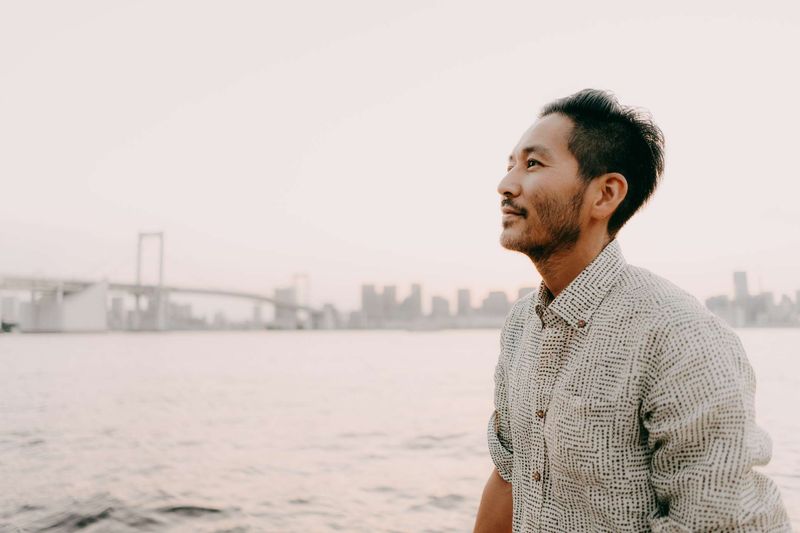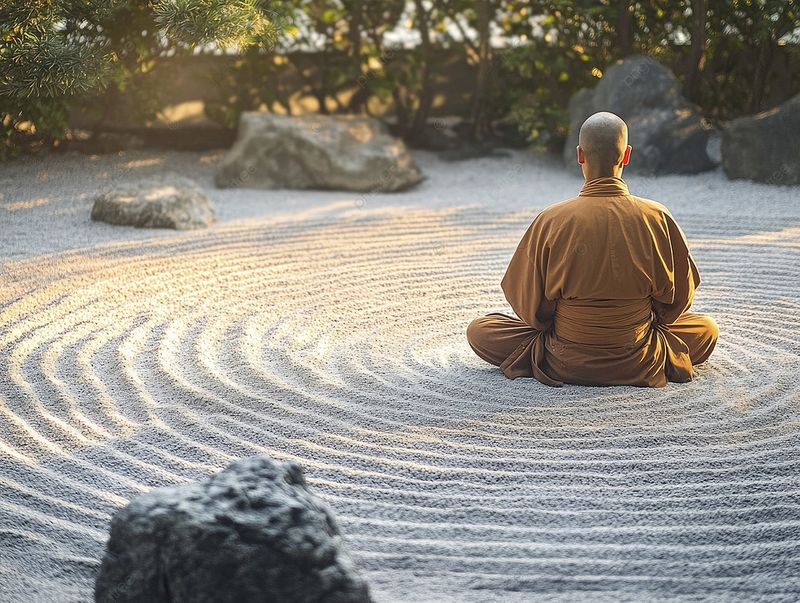30 Real Reasons People Isolate Themselves from Friends & Family as They Get Older
If you’ve ever looked around and wondered, “Why do I feel more alone now than I used to?”—you’re not broken. You’re not cold. You’re not antisocial. You’re human. And you’re evolving.
As we get older, our energy shifts. Our priorities change. And sometimes, so do our boundaries.
Isolation doesn’t always come from pain—it can also come from growth, awareness, and emotional exhaustion.
Here are 30 real, raw reasons people pull away from friends and family as they grow older. Spoiler: it’s often about preserving peace, not being petty.
1. They’re tired of surface-level relationships

Small talk gets smaller. Deep connection becomes non-negotiable. They crave conversations that matter, ones that ignite the soul and engage the mind. Superficial exchanges feel hollow, almost like an echo that fades too quickly.
As the years pass, they yearn for authenticity in every dialogue and bond. Endless chit-chat about the weather or mundane topics can feel draining. Instead, they seek richness and resonance in interactions.
Their hearts long for meaningful connections, something profound that dives beneath the surface. This desire for depth makes them selectively silent. It’s not about shutting people out; it’s about inviting the right ones in. Prioritizing quality over quantity becomes a personal mantra. They know life is too short for anything less.
2. They’ve outgrown unhealthy dynamics

Just because you grew up together doesn’t mean you grew in the same direction. They’ve realized that growth often requires letting go. Relationship patterns that once felt normal now feel like chains.
They’ve begun to see through the toxic patterns, the silent judgments, and the unspoken rules that kept them tethered. The realization hits: not every bond is meant to last forever.
Choosing to step away isn’t an act of cruelty. It’s a courageous declaration of self-worth. They understand that holding onto what harms them isn’t loyalty; it’s self-betrayal. The journey to healthier interactions starts with shedding what no longer serves them. This newfound clarity leads to liberation.
3. They’re protecting their energy

Constant drama, gossip, or negativity? No thanks. They’ve come to understand that not every battle is worth their energy. Protecting their peace becomes paramount.
They choose where to invest their emotional resources wisely. Walking away from toxic energy doesn’t make them weak; it shows strength and self-respect.
By setting clear boundaries, they ensure they’re not sacrificing their well-being for constant chaos. Their inner sanctuary becomes a sacred space, tended to with care and intention. It’s a shield, a self-made sanctuary from the chaos of the world. The commitment to self-care radiates from within, a protective aura against life’s storms.
4. They no longer feel seen or heard in certain spaces

Being physically present doesn’t fix emotional invisibility. They might be surrounded by many, yet feel utterly alone.
In spaces where voices drown out their own, they retreat into silence. Not out of defeat, but from a profound understanding of their worth.
They seek places where they can express their true selves without fear of judgment or misunderstanding. True belonging comes from being acknowledged and valued, not merely occupying space.
Their absence isn’t an act of rebellion; it’s a quest for genuine connection. They’d rather be alone than unseen. They walk away, looking for environments where they can truly be themselves, where their voice echoes back acknowledgment.
5. They’re processing unhealed childhood wounds

And sometimes that means taking space from the people who caused them. The past lingers like a shadow, sometimes growing larger with age.
They’ve realized that certain interactions trigger memories of unhealed wounds. Taking space isn’t about blame; it’s about healing and understanding.
The journey inward often requires distance from those who might unknowingly reopen old scars. They’re on a path of self-discovery, seeking closure and peace.
Healing demands solitude at times, a quiet reflection without external interference. The process is deeply personal and profoundly necessary. Silence becomes a salve, mending what was once broken, paving the way for a lighter future.
6. They’ve learned boundaries—and finally started using them

And those boundaries? Not everyone respects them. Setting limits was once foreign, even uncomfortable. But now, they know it’s essential.
Boundaries aren’t walls; they’re bridges to healthier relationships. By defining what’s acceptable, they guard their values and emotions.
It’s not about exclusion, but inclusion of healthier dynamics. When others push back, it’s a sign of necessary change.
They’ve realized that self-respect is non-negotiable. Boundaries become a testament to their self-worth. They stand firm, knowing that true connections will honor the lines they draw. It’s a newfound power that transforms relationships for the better.
7. They’re healing in silence

Some healing doesn’t require group chats—it requires solitude. In silence, they find the clarity and peace the noise often drowns out.
The world rushes past, but they choose stillness, allowing wounds to mend in their own time. It’s a quiet revolution, each moment of silence a step towards wholeness.
They retreat into nature or a cozy corner, where the only voices are the whispers of their heart. Silence isn’t loneliness; it’s a nurturing embrace, a space where transformation gently unfolds. Here, they reconnect with themselves, finding strength in solitude’s soft lullaby.
8. They feel emotionally drained after interactions

If every call leaves them more tired than uplifted, they’ll avoid it. They notice how their energy depletes after certain encounters, a slow siphoning of spirit.
They once felt obligated to maintain connections, fearing judgment or guilt. But now, self-awareness guides their choices.
Interactions should uplift, not exhaust. They prioritize spaces where their energy isn’t stifled. It’s about choosing joy over obligation.
They seek reciprocation, where giving and receiving are balanced. They value connections that recharge them, like a warm cup of tea on a chilly day. In recognizing their needs, they honor their emotional well-being.
9. They’re done explaining themselves

Over-explaining who you are is exhausting. Silence is simpler. They’ve grown weary of justifying their choices, values, and dreams.
In constant explanation, they lose pieces of themselves to misunderstanding and judgment. They’ve learned that not everyone needs to understand.
Their journey is personal, and not all roads require a map or commentary. In embracing silence, they reclaim their narrative, no longer diluted by external opinions.
They choose to walk their path with quiet confidence, knowing their truth is enough. Silence becomes a powerful ally, allowing them to live authentically, free from the burden of constant justification.
10. They’re grieving—and don’t know how to say it out loud

Loss changes people. So does quiet sadness. Grief can be an isolating companion, leaving them searching for words that never come.
They carry their sorrow like an invisible cloak, its weight both familiar and unwelcome. Speaking of it feels impossible, as if words might cheapen its depth.
In silence, they honor their feelings, letting tears fall like silent confessions. It’s not about hiding; it’s about finding a way through that respects their pace.
They seek solitude not to escape, but to remember and to heal. Grief is a personal journey, one where silence often speaks the loudest truths.
11. They no longer tolerate passive-aggression or guilt trips

Respect > obligation. The weight of subtle digs and covert manipulations has grown too heavy to bear.
They refuse to be ensnared in webs of implied guilt and unspoken slights. Instead, they choose clarity and directness, cutting through the fog of passive aggression.
Their response is simple: they walk away, valuing their peace over pleasing others. It’s a stance of strength, not defiance.
Their boundaries now act as a shield, protecting them from emotional games. In choosing respect, they empower themselves, crafting relationships based on mutual understanding and genuine kindness.
12. They feel judged instead of supported

Family and friends aren’t always safe spaces—and that’s the hard truth. Once cherished gatherings now feel like trials of judgment.
The subtle critiques and questioning glances erode their sense of belonging. Rather than acceptance, they encounter scrutiny.
They yearn for spaces where they can breathe freely, without the weight of expectation. Support should come unconditionally, but often it’s tangled with conditions.
In choosing solitude, they seek freedom from judgment, embracing environments where they can be authentically themselves. Their journey is about finding acceptance within, where they are their own greatest ally.
13. They’re recovering from people-pleasing

And saying no often leads to being misunderstood. For years, they wore the mask of compliance, sacrificing their desires for others’ comfort.
The word ‘no’ felt foreign, heavy with the fear of disappointing those they care about. Yet, as they reclaim their voice, misunderstandings arise.
It’s a necessary discomfort in the quest for authenticity. They learn that their happiness isn’t tied to others’ perceptions.
In prioritizing their needs, they experience a liberation that’s both terrifying and exhilarating. They stand before the mirror, embracing the reflection of their true self, unburdened by the need to please.
14. They’re mentally exhausted from carrying everyone else’s problems

Empaths eventually burn out, too. Their compassion once felt limitless, but now it strains under the weight of others’ issues.
They’ve become the emotional rock, the go-to for advice, comfort, and support. But this role has come at a cost.
Their mental landscape is cluttered with others’ stories, leaving little room for their own. They learn that self-care means setting boundaries on how much they can give.
By releasing the need to solve everyone’s problems, they find space to breathe and heal. It’s an act of self-preservation, allowing them to nurture their own needs and dreams.
15. They crave depth—but keep finding performance

Performative “love” isn’t the same as real connection. They seek relationships that resonate with truth, not just appearances.
The world around them often feels like a stage, filled with roles and scripted lines. They’ve grown weary of the masks people wear, the façade of care that fades when tested.
Their heart yearns for authenticity, connections that don’t require pretense. In their search for depth, they discover that true love isn’t a performance; it’s a genuine exchange of souls.
They step away from the superficial, diving into connections that sing with sincerity. Their quest is for something real, something that nourishes the soul.
16. They’re building a new version of themselves

And not everyone fits into that next chapter. They’re undergoing a transformation, constructing a self that aligns with their deepest truths.
As they evolve, they find that some relationships no longer complement their path. It’s a bittersweet realization, a testament to their growth.
In letting go, they make space for new experiences and connections that reflect their current reality. They honor their journey by embracing change, understanding that not everyone can come along.
This metamorphosis requires courage, a willingness to step into the unknown. They forge ahead, confident in the unfolding of their authentic self, ready for what lies beyond.
17. They’re protecting peace at all costs

Even if that means distance. Peace isn’t just a luxury; it’s a necessity they’ve come to cherish.
Their sanctuary is built on the absence of chaos, a refuge from the storms of life. They understand that maintaining peace often requires setting firm boundaries.
Distance becomes a tool, a way to ensure that their inner tranquility remains undisturbed by external turbulence.
They cultivate environments where peace is the foundation, where their spirit can rest and rejuvenate. It’s a conscious choice, a commitment to living in harmony. Their peace is non-negotiable, a treasure they protect with unwavering commitment.
18. They’ve realized love without respect isn’t enough

You can love someone deeply—and still need space from them. The realization that love isn’t synonymous with respect is profound.
They’ve witnessed relationships where love is abundant but respect is scarce. It’s a painful dichotomy, where affection doesn’t equate to being valued.
They understand now that respect is the cornerstone of any lasting connection. Without it, love becomes a hollow shell, lacking the support it needs to thrive.
In seeking balance, they choose relationships where both love and respect coexist in harmony. They honor their worth by demanding both, knowing that true connection cannot exist without this essential duality.
19. They’re learning to enjoy their own company

Solitude isn’t loneliness when you like who you’re with. They’ve discovered the joy of their own presence, a contentment that blossoms in silence.
Alone doesn’t mean lonely; it means freedom to explore their thoughts without interruption. Their home becomes a haven, filled with quiet joys and simple pleasures.
In learning to savor their own company, they find a source of strength and inspiration. It’s a journey of self-discovery, where they come to appreciate their uniqueness.
They revel in the freedom that solitude brings, a liberation from external demands. In their own company, they find peace and happiness, a contentment that radiates from within.
20. They’ve experienced betrayal and haven’t fully recovered

Trust once broken makes connection harder. Betrayal cuts deep, leaving scars that linger long after the incident.
They carry these wounds cautiously, hesitating to open up completely again. The fear of experiencing such pain once more looms large.
They’ve learned to protect their heart, to be discerning about whom they let in. The process of rebuilding trust is slow and requires patience.
In their solitude, they mend piece by piece, finding solace in their own strength. The journey towards healing is personal, a gradual reawakening of trust that begins within. It’s a path towards rediscovering hope and connection, one step at a time.
21. They’re going through a private transition

Breakup. Job change. Identity shift. And they don’t want to perform through it. Life’s transitions require a delicate balance of introspection and action.
In these moments, they withdraw to focus on the transformation at hand, seeking clarity without distraction.
Performing resilience for others can feel exhausting, so they choose solitude to process their emotions authentically.
These periods of change are like packing a suitcase, carefully choosing what to carry forward and what to leave behind.
It’s about embracing a new chapter with intention, allowing themselves the grace to evolve without the pressure of external expectations. In solitude, they find the courage to redefine their path.
22. They feel pressure to be someone they’re not around certain people

Authenticity becomes more important than acceptance. They find themselves in environments where they must mold their identity to fit in.
The pressure to conform leaves them exhausted, a constant performance that feels disingenuous.
They realize that true acceptance starts with being genuine to oneself. In stepping away, they seek spaces where they can be unapologetically themselves.
The journey to authenticity is a reclamation of self, shedding the masks they’ve worn for others’ approval. By choosing authenticity over acceptance, they honor their true self, allowing relationships to flourish based on genuine connection.
23. They’ve become more intentional with their time

And small talk, shallow invites, or pity calls don’t make the cut. Time is precious, a non-renewable resource they’ve learned to treasure.
They’ve grown intentional about how they spend their moments, prioritizing meaningful engagements over trivial interactions.
Their calendar reflects their values, filled with activities that align with their goals and passions.
By saying no to what doesn’t serve them, they create space for what truly matters. Their decisions are guided by a desire to live purposefully, maximizing the quality of each day.
They’ve learned that time management isn’t just about efficiency; it’s about living a life that resonates with their deepest desires and aspirations.
24. They’ve grown spiritually or emotionally—and it changed their circles

The more they align with their truth, the more misalignment they feel in old spaces. Spiritual and emotional growth often leads to a shift in the company they keep.
As they deepen their understanding of themselves, old connections may no longer resonate. It’s a natural progression, an evolution of the soul.
They seek relationships that reflect their newfound perspectives, where growth is a mutual endeavor. This realignment isn’t about exclusion, but about honoring their journey.
In stepping away from what no longer serves them, they create space for bonds that nurture their expanded consciousness. It’s a dance of souls, each step bringing them closer to authentic connection and understanding.
25. They’re tired of giving more than they get

One-sided relationships lose their shine. They’ve reached a point where giving without receiving feels unfulfilling.
They’ve poured their energy into connections that have become imbalanced, leaving them depleted.
Now, they’re seeking reciprocity, relationships where giving and receiving are in harmony.
It’s not about keeping score, but about mutual respect and appreciation. They value connections where effort is recognized and reciprocated.
In choosing to walk away from one-sided dynamics, they open themselves to relationships that honor their worth. The balance they seek becomes a guiding principle, a beacon towards more fulfilling interactions.
26. They no longer feel “at home” in places that used to feel safe

Sometimes the familiarity is what’s holding them back. The places that once offered comfort now feel constricting, like outgrown garments.
They’ve changed, evolved, and the spaces haven’t kept pace. It’s a bittersweet realization, a recognition that growth often requires leaving the old behind.
They seek environments that reflect their current self, where they can continue to expand without limitation.
The search for a new sense of home becomes a journey of self-discovery. It’s about finding where they truly belong, where the surroundings mirror their evolution.
In letting go, they embrace the possibility of new beginnings, forging connections that resonate with their transformed identity.
27. They’re re-learning self-worth—and that makes some connections uncomfortable

Growth can be lonely. But it’s also necessary. They’ve embarked on a journey of rediscovering their self-worth, a path that isn’t always easy.
In this process, certain relationships feel strained, as their newfound confidence challenges old dynamics.
They realize that self-worth isn’t dictated by others, but forged from within. As they embrace this truth, they might lose connections unable to support their growth.
It’s a necessary shedding, paving the way for relationships that celebrate their worth. The journey is one of empowerment, a testament to their resilience.
In standing tall, they invite connections that uplift and honor their true self, free from the constraints of past insecurities.
28. They’re not isolating to disappear—they’re isolating to reconnect with themselves

And that’s not selfish. That’s healing. They’ve found that solitude offers a chance to reconnect with their inner world.
In stepping away from the noise, they hear their own voice more clearly. Isolation becomes a cocoon, a space where they can nurture their soul and dreams.
It’s a retreat, not an escape, allowing them to emerge stronger and more aligned with their true self.
They understand that connecting with oneself is the foundation for meaningful connections with others.
This time alone is a gift, a sacred pause that rejuvenates the spirit. It’s about building a relationship with themselves, one that is rich, fulfilling, and deeply authentic.
29. They Struggle with Unprocessed Trauma

Unresolved trauma can create barriers in maintaining relationships. A person might isolate themselves to avoid reminders of painful past events. Each interaction can feel like a potential trigger, making solitude a safer choice.
Furthermore, the emotional energy required to engage with others may be too draining. The need to protect oneself can overshadow the desire for social connection.
In silence, they find solace, even if it means loneliness. This protective mechanism, while comforting, can lead to long-term isolation. Addressing the root cause is crucial for breaking this cycle and reconnecting with loved ones.
30. They’re Embracing Minimalism

Embracing minimalism often leads to shedding not just material possessions but also complex social ties. The desire for a simpler, more intentional life can result in drawing back from friends and family.
In this journey, individuals prioritize quality over quantity in all aspects, including relationships. This shift is not necessarily about negativity towards others but about seeking deeper, more meaningful connections.
Minimalism allows for personal growth and self-discovery, which sometimes requires stepping away from the crowd. By simplifying their social circles, they focus on what truly matters.







